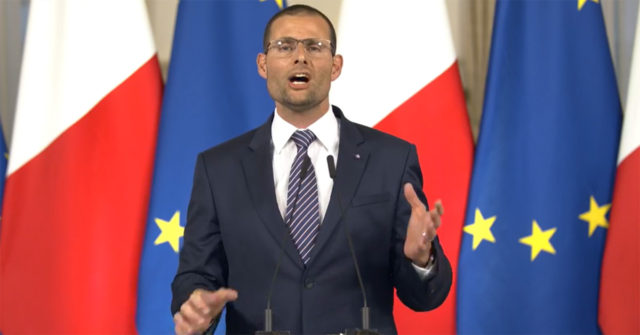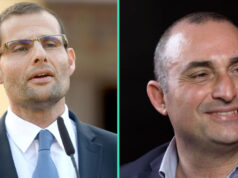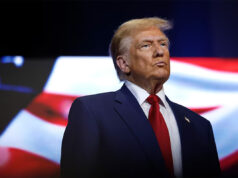Cicero, Winston Churchill, Barack Obama. These are just a few of the renowned public speakers who aren’t as good as me, Robert Abela, at captivating an audience with my words.
And unlike my inferior forbears, I’m going to show you how I achieve my oratorical genius…
Wing it
Speech writers are expensive, and I’ve always found the idea of saying words that other people wrote for you to be weird. No, best to just say what comes to mind, with a few scribbles on a piece of paper as back-up.
Keep it long
My motto is – if you can say what you need to say in five minutes, stretch it out to twenty. A lot of people argue that less is more, but that doesn’t make any sense. More is more. Not to mention the fact that the longer I go on, the more I get to hear the sound of my own voice, which I love only slightly less than looking at myself in the mirror.
It doesn’t matter if people would rather you get to the point and make the important announcements. This is your time.
Repeat the same thing over and over
One thing I like to do a lot is to start a new sentence with the same word I ended the previous one with. This lets people know that I’m giving a speech rather than a series of unconnected statements. You can see this in action in the opening lines of the speech I gave yesterday:
“Insellmilkom, u l-lejla t-tajba lil kulħadd. Illum b’daħka ftit iżjed mis-soltu. It-tbissima li turi sens ta’ sodisfazzjon. Sens ta’ sodisfazzjon għal biċċa xogħol iebsa. Iebsa hafna. Iebsa forsi iktar milli wieħed jista’ jiddeskriviha, imma s-sodisfazzjon li tkun ħdimtha b’suċċess. Li tkun kburi, li tkun ġejt fdat bħala pajjiż, biċċa xogħol iebsa. Imma li tkun wassaltha fid-direzzjoni illi xtaqt.”
It’s not totally clear whether I’m praising the country for its resilience, or patting myself on the back (spoiler alert – it’s the latter), but clarity isn’t important when giving a speech.
As you can see from the above example, I also like to repeat single words:
“Il-biża‘. Kemm hija kelma kerha, il-biża‘. Il-biża‘ li tikkundizzjonak li tieħu deċiżjonijiet li minn ġo fik tkun taf li mhumiex deċiżjonijiet tajba, imma dil-biża‘ tegħlibhom u ġġieghlek tmur f’direzzjoni li int ma tkunx tixtieqha. U l-appell tiegħi llum huwa: tħallux lilkom infuskom tkunu kkundizzjonati mill-biża‘. Naturalment, dak kollu li ngħid, ngħidu b’mod kawt. Imma l-biża‘ mhijiex tajba. Il-biża‘ hija dik li tieħdok lejn deċiżjonijiet ħżiena…”
You can do this with whole phrases too:
“Ħafna llum qed jitkellmu: “Kemm nixtieq immur lura għax-xogħol. Ftit tal-ġimgħat ilu konna nghidu: “Kemm nixtieq nagħmel ġimgħa ma mmurx għax-xogħol. Illum kulħadd qed jitkellem lingwa waħda: “kemm nixtieq immur lura għax xogħol.””
Many famous speeches and phrases contain tricolons, or repetitions of three. But personally, if I had written ‘I came. I saw. I conquered,’ it would have been: ‘I came. I saw. I conquered. I won. I vanquished, and yes, I triumphed and emerged victorious.’ Much better.

Don’t stop
As you can see from the above examples, I never emphasise any of my sentences to lend them gravitas and drive home a point. And I always add an unnecessary afterthought, aside or jibe at my unnamed critics. Ramble, ramble, ramble.
I also never signal when I’m about to end, just to keep people on their toes. In fact, I only ever stop when Chris and Charmaine start giving me side-eye. Otherwise, I’d carry on forever.
A word on journalists’ questions
You should always show disdain for journalists who ask tough questions. Express your surprise that they’d even think to ask such questions. How dare they bring up your half-truths and exaggerations when you’re trying to be positive?
On the other hand, make a joke about how you’re expecting the upcoming ‘question’ from the One News ‘journalist’ to be an easy one. There’s nothing funnier than North-Korea-esque media.
And there you have it. Now get on a podium and start mesmerising everyone with your new rhetorical skills.










